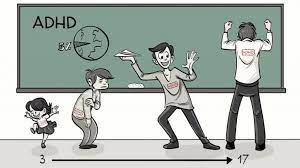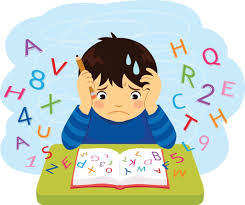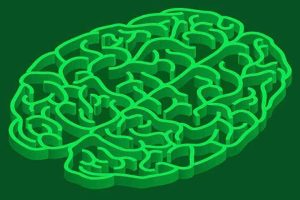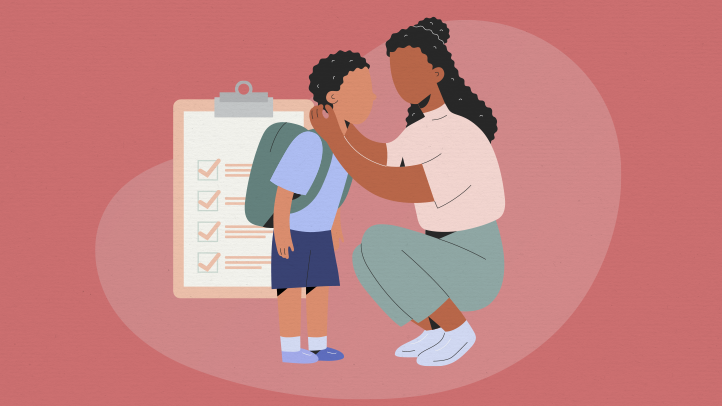We all want our kids to succeed in school, but too often children with ADHD are hindered by their symptoms. In this blog post, we discuss how teachers can help students with ADHD and give tips for parents and professionals on what you should be looking out for at school.
Contents
Understanding ADHD In Children
What Is ADHD In Children?

ADHD is a neurodevelopmental disorder that includes symptoms of inattention, hyperactivity, and impulsivity. Symptoms can appear as early as age three but are usually diagnosed between four to twelve years old when behavioral problems become noticeable at school or home. In fact, over two-thirds of children with ADHD experience significant difficulties at school including lower grades, trouble with homework, and problems making friends.
What Causes ADHD In Children?
The cause of ADHD is not fully understood but it is believed to be caused by a combination of genetic and environmental factors. Studies have shown that children with ADHD are more likely to have parents who also have the disorder. Additionally, exposure to lead or other toxins, premature birth, and low birth weight may increase the risk of developing ADHD. Some studies also suggest that exposure to cigarette smoke or lead may increase the risk of developing ADHD. While others indicate that children who have siblings or cousins with ADHD may be more likely to develop the disorder.
What Are The Signs And Symptoms Of ADHD In Children?

There are three types of symptoms associated with ADHD:
- Inattention;
- Hyperactivity; and
- Impulsivity.
These can impact school, friendships, family life, self-esteem, learning ability, and overall well-being. Some children with ADHD may have symptoms of one or two types while others may experience all three.
Inattention Symptoms
Kids who struggle with inattentive ADHD often lose things, forget to bring home assignments from school, and do not follow through on instructions. They also tend to daydream a lot and have trouble paying attention during classwork or conversations.
Hyperactivity Symptoms
Kids with hyperactive ADHD are always on the go and can’t sit still for more than a few minutes. They may be disruptive in class, talk too much, or have trouble controlling their impulses.
Impulsivity Symptoms
Children with impulsivity ADHD often act without thinking things through which can lead to difficulty in school and social settings. They also tend to be impatient, interrupt conversations or meetings, make impulsive decisions without considering the consequences, act before thinking about safety issues (like running across the street) and have trouble waiting their turn in games or group activities.
Challenges Faced By Children With ADHD In School

There are a few common challenges that children with ADHD face in the classroom setting:
Distraction
Many students with ADHD are easily distracted by things going on around them, which can lead to difficulty paying attention and completing schoolwork.
Organization
Students with ADHD may have trouble organizing their materials and completing tasks promptly. They may be more likely to forget their homework or school supplies, lose things daily, and struggle with following directions.
Time Management
Students with ADHD commonly have trouble staying focused for long periods as well as managing their time effectively to meet deadlines. This can lead them not only to miss work but also to fail to complete important assignments.
Inattention
One of the most common symptoms of ADHD, inattention can make it difficult for students to stay on task and pay attention in class. They may daydream a lot or become easily bored with schoolwork.
Behavioral Problems
Some students with ADHD exhibit disruptive behaviors in the classroom. While these behaviors may be due to other issues going on in their lives, they can make it difficult for children with ADHD to succeed at school.
NOTE: It is estimated that between 30-50% of children who have ADHD also have trouble learning which means they may need extra help at home or special accommodations in the classroom.
Setting up your child for school success
Most children with ADHD can learn to manage their symptoms as they grow and mature. Here are some ways that you can help your child reach his or her full potential:
- Avoid criticism, punishment, anger, and threats; these will make things worse by making your child feel bad about himself/herself.
- Set realistic expectations and help your child break down tasks into smaller, more manageable parts. Help him organize his school materials, homework, and time so that he is less overwhelmed.
- Encourage your child to get plenty of exercises and enough rest as both can help improve ADHD symptoms.
- Keep a positive attitude and remain supportive, even when things get tough. Let your child know that you believe in him and will help him however you can.
NOTE: Know that your child is just as smart, talented, and capable as his/her classmates even if he or she does not always demonstrate these qualities in the same way. So, encourage positive behaviors and praise him for what he can do well (even something small). Make sure to reward good behavior with tangible things like stickers, prizes, or special privileges.
Practical Tips For The School Success Of Your Child With ADHD
Tips For Parents Working With Teachers
One of the most effective ways to help your child succeed in school is by working closely with their teacher. Teachers need as much information about a student’s condition as possible to best help them succeed, so parents must provide them with all the necessary details.
Parents should also be aware of what type of accommodations their child may need in the classroom, such as extended time for tests or assignments, a separate desk to minimize distractions or a break during long classes. If you are a parent of a child with ADHD, here are some tips for working with your child’s teacher:
- Share information about your child’s condition with the teacher and ask what accommodations they may need to help them succeed.
- Ask how you can be involved in their education and whether or not there is anything you can do to help at home.
- Make sure to follow all school rules and deadlines so that your child is not penalized for their ADHD.
- Talk to the teacher about any problems or concerns you may have and ask for their help in solving them.
Tips For Teachers Working With Parents Of Kids With ADHD
When working with parents of children who have been diagnosed with ADHD, teachers should be sure to provide any documentation they may need. This includes your child’s IEP (Individualized Education Plan) or 504 plan. So that the parent understands what accommodations the student needs in school and how you will help them succeed. Here are some tips for teachers working with parents of kids who have ADHD:
- Be patient and understanding. Remember that the parents are likely just as frustrated as they are about their child’s ADHD and may not know how to best help them.
- Take the time to explain things clearly and in detail, using examples whenever possible.
- Make sure to keep the lines of communication open and be available to answer any questions the parents may have.
- Be prepared to offer suggestions on how the parents can help their child at home with homework or organizational tasks.
Tips For Managing ADHD Symptoms At School
There are a few things parents can do to help their children manage their ADHD symptoms while at school. One of the most important is to talk to the teacher about what strategies they can use in the classroom. In addition to working with your child’s teacher, there are a few things parents can do to help manage ADHD symptoms at school.
- Create a routine and stick to it as much as possible.
- Pack your child’s backpack and lunch the night before to avoid any morning rush.
- Allowing the child to move around during class time if he/she has hyperactivity ADHD;
- Providing the child with a quiet place to work when necessary;
- Breaking large assignments into smaller tasks that can be completed over several days.
- Encourage your child to take breaks throughout the day and get up and move around as needed.
NOTE: Surround your child with a supportive and encouraging environment at home to help them feel comfortable talking about their ADHD symptoms and working through any challenges they may face in the classroom.
Tips For Making Learning Fun
One of the best ways to help a child focus and learn is by finding out what type of activities they enjoy most, then incorporating those into classroom lessons whenever possible. Also, kids with ADHD often struggle academically which can lead to frustration, boredom, and poor performance throughout the school. There are a few things parents can do to make learning more fun and engaging for their children:
- Choose educational games and activities that are stimulating and challenging.
- Make sure your child has a positive attitude towards school and academics.
- Encourage them to find something they are interested in learning about and help foster a love of learning.
- Provide positive reinforcement whenever they do well in school or show an effort to learn.
NOTE: If your child loves art or puzzles, consider having them do these during free time in class, or as homework assignments. You can also try to find educational games and activities that will keep your child engaged and interested in learning.
Tips For Mastering Homework

Homework can be a challenge for any student, but it can be especially difficult for children with ADHD. Here are a few tips to help make the process a bit easier:
- Break down the homework assignment into smaller parts and work on one part at a time.
- Set a specific day and time for homework each week and make sure your child is ready to start when it’s time.
- Talk to the teacher if there are any specific areas where your child is struggling.
- Create a designated place for your child to do their homework (e.g. desk, kitchen table) and have all of the necessary supplies nearby.
- Encourage your child to take breaks and relax for a few minutes after completing a task.
Expert Comments On ADHD And School
There is a lot of information out there on ADHD and school, but it can be difficult to know who to trust. Here are some comments from experts in the field:
“A diagnosis of ADHD should never be used as an excuse for a child’s poor academic performance. With appropriate accommodations and interventions, most children with ADHD can achieve success in school.” – Dr. Stephanie Sarkis
“It is important to remember that many kids with ADHD are very smart and have a lot of strengths. The key is finding what works best for them and helping them to maximize their potential.” – Dr. William Barbaresi
“A lot of children with ADHD are not good test takers because they don’t sit still or pay attention long enough, but that doesn’t mean that they aren’t smart and capable learners.” – Russell Barkley
CASE STUDY

Nicole was diagnosed with ADHD at the age of 11 and has experienced many challenges in school. She works hard to complete her assignments but often struggles to stay focused on them for an extended period. Although she has a good friend group at school and is doing well academically, she is prone to frustration easily when it comes to homework and struggles to keep up with her classmates.
After meeting with Nicole’s teacher and discussing her diagnosis, they came up with a plan to help her succeed in school. They agreed that Nicole would take breaks every 20 minutes during homework time, and the teacher would give her shorter assignments that were more manageable. Nicole’s parents also made sure she had a designated place to do her homework, along with all the necessary supplies.
In addition to these accommodations, Nicole’s parents also spoke with one of their family friends who is a teacher for advice and tips on how to help make learning fun for children with ADHD. They learned that it can be helpful if kids see themselves as capable learners from an early age, so they focus on reinforcing Nicole’s strengths and providing positive reinforcement whenever she does well in school.
With the help of her parents, teacher, and friends, Nicole was able to overcome many of the challenges that came with having ADHD and is now doing well in school. She still has moments where she struggles but knows how to manage her symptoms better than ever before.
Talking To A Professional
If you have general questions about ADHD and school or need more help working with your child’s teachers. Then there are a few professionals that can be of assistance:
Psychologist: Psychologists often work directly with children to determine if they have ADHD. They also provide behavioral therapy for both parents and kids which is helpful in many cases. A psychologist will also be able to provide an evaluation for ADHD medication.
School Counselor: School counselors can help with a variety of issues, including helping children adjust to school, developing coping mechanisms for academic and social stressors, and working with teachers on educational accommodations.
Principal or Administrator: If you are not getting the help you need from your child’s teachers, you can also contact the principal of your child’s school to get more involved. They will be able to provide insight into policies and practices that you may need to change for kids with ADHD to receive better accommodations.
NOTE: If you are concerned about your child’s academic performance or suspect they may have ADHD, it is important to talk to a professional. They can provide an evaluation and help create a plan that will best meet the needs of your child. There are many resources available to parents, teachers, and kids with ADHD, and with the right support, they can achieve success in school.
Conclusion
Many strategies can be helpful when working with children who have ADHD in school. Parents, teachers, and other professionals should work together to make sure the child can succeed academically while maintaining healthy self-esteem.
A Word From Therapy Mantra
Your mental health — Your psychological, emotional, and social well-being — has an impact on every aspect of your life. Positive mental health essentially allows you to effectively deal with life’s everyday challenges.
At TherapyMantra, we have a team of therapists who provide affordable online therapy to assist you with issues such as depression, anxiety, stress, workplace Issues, addiction, relationship, OCD, LGBTQ, and PTSD. You can book a free therapy or download our free Android or iOS app.


